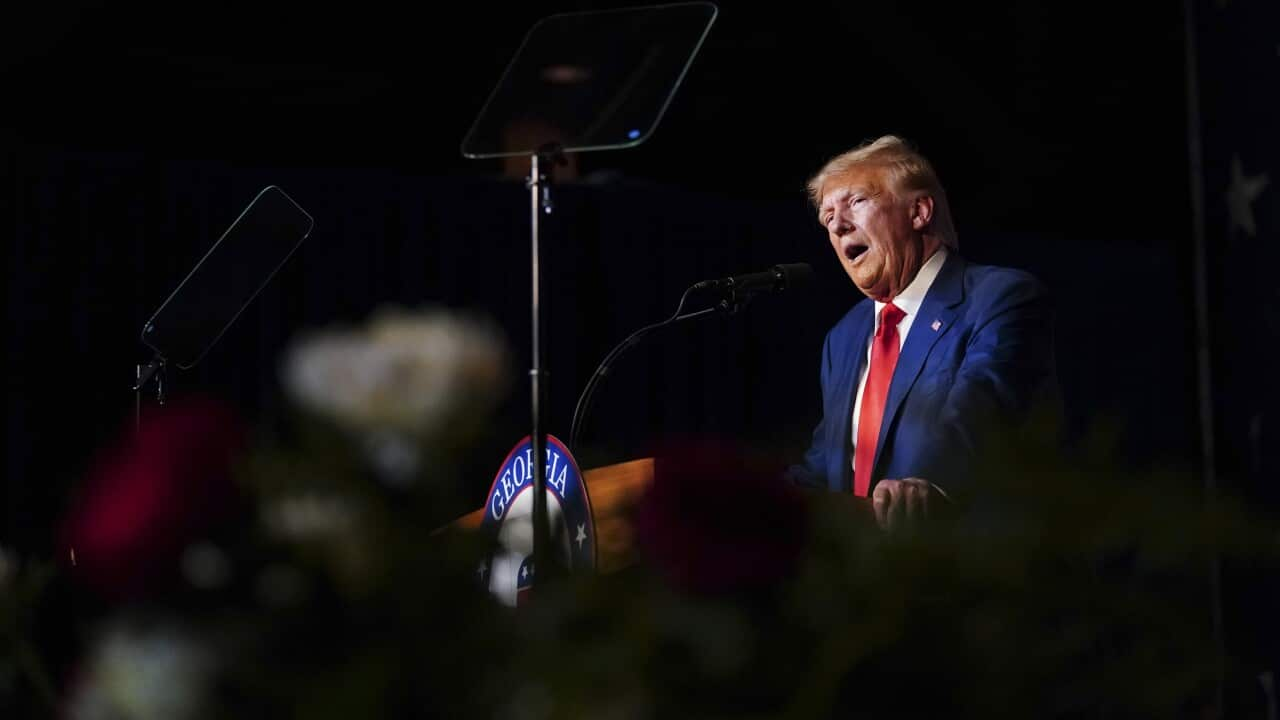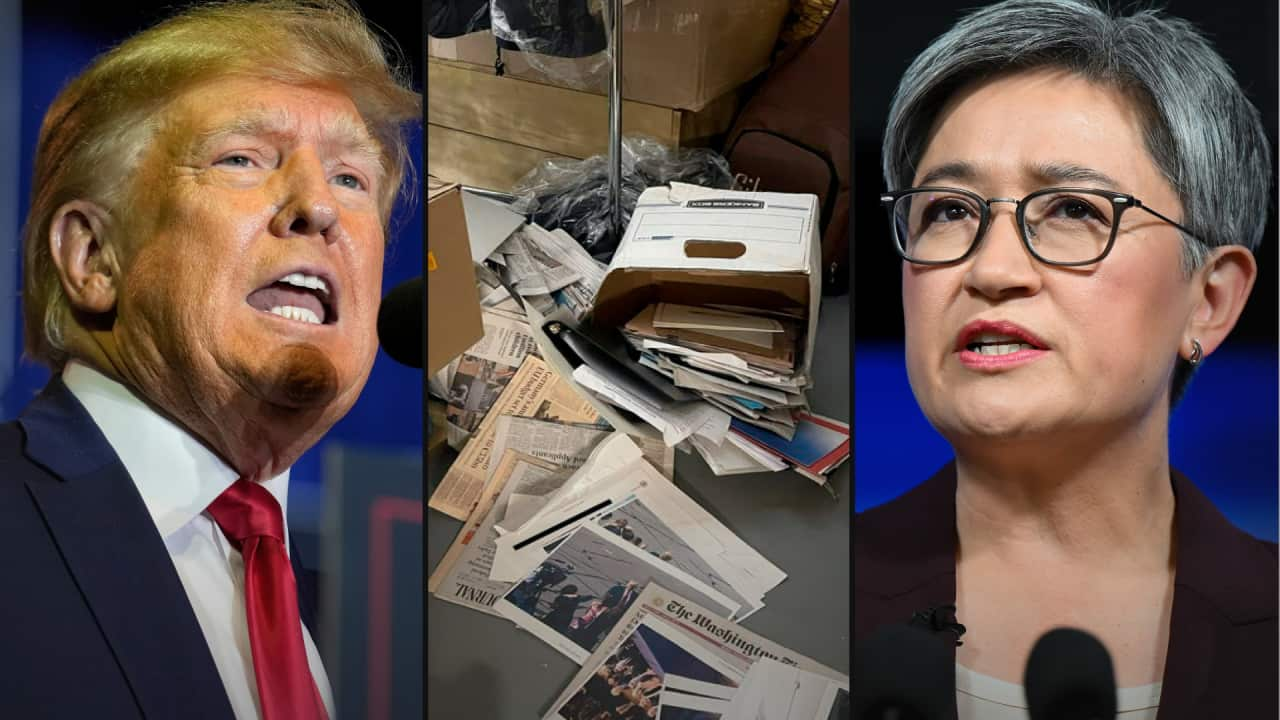Former US president Donald Trump has become the most high-profile person to ever face criminal charges under the Espionage Act for the unlawful retention of sensitive national defence records.
In all, Mr Trump faces 37 criminal counts, 31 of which relate to secret or top-secret classified documents. He is also charged with obstructing justice, conspiracy, concealment and false statements.
What is the Espionage Act?
The Espionage Act is an anti-spy law enacted by Congress shortly after the start of World War One.
The statute criminalises a broad array of conduct related to the mishandling of sensitive government records connected to "national defence", a term generally referring to military records that, if disclosed, could damage US national security.
Over the years, the law has been used as a legal tool by the Justice Department to prosecute people ranging from suspected Soviet spies to famous whistle-blowers like Daniel Ellsberg, who leaked the Pentagon Papers, and Edward Snowden, a former intelligence consultant who leaked classified National Security Agency records to reveal the existence of a domestic surveillance program.
During the Obama and Trump administrations, some of the Justice Department's most high-profile Espionage Act prosecutions targeted government employees who leaked classified information to the press or to the website Wikileaks, such as former Army Private First Class intelligence analyst Chelsea Manning and former intelligence contractor Reality Winner.
Manning was sentenced to 35 years in prison, though former president Barack Obama later commuted her sentence, while Winner was sentenced to more than five years after she admitted to leaking a top-secret report on Russian interference in US elections to the media outlet The Intercept.
Wikileaks founder Julian Assange has also been charged under the Espionage Act, and is fighting extradition to the United States.
How does the Espionage Act apply to Donald Trump?
The office of Justice Department Special Counsel Jack Smith filed charges against Mr Trump after the FBI searched the Florida resort where he lives in August 2022 and located about 13,000 government records, about 100 of which were marked as secret or top secret, the highest classification level, reserved for the government's most closely-held secrets. Altogether, prosecutors say he improperly retained 337 classified records.
Mr Trump has previously denied breaking the law, arguing that he declassified the records in question and that his broad presidential powers gave him the authority to disclose or declassify materials.
However, the Espionage Act itself does not explicitly require prosecutors to prove that the records themselves were classified, and neither Mr Trump nor his attorneys have provided any evidence to suggest they were ever declassified.
Prosecutors have charged Mr Trump with violating a section in the Espionage Act which applies to someone who has "unauthorised possession" of national defence information, the same crime to which Winner pleaded guilty.
This section of the law makes it a crime to wilfully retain the information and fail to deliver it back to the proper US government official.
What will prosecutors have to prove to a jury?
To obtain a conviction against Mr Trump, the government will need to prove beyond a reasonable doubt that he wilfully retained the material and failed to turn it over to the government.
Prosecutors do not need to show that Mr Trump knew it was national defence information, but rather that a reasonable person should have known it was.
Part of the government's evidence will likely entail laying out all the steps it took to get the records returned.
This includes a year-long effort by the US National Archives and Records Administration, which repeatedly reached out to Mr Trump through his attorneys to request that he return missing records.
While Mr Trump finally agreed to send the Archives 15 boxes of material a year after leaving the White House, some of those records were marked as classified, and the boxes did not include all of the records in his possession.
Even after the Justice Department tried to retrieve the remaining records with a subpoena, Mr Trump only handed over an additional 38 pages marked as classified.
It took a court-approved search warrant before the FBI was able to retrieve the bulk of the records that remained.
The government will also present evidence from Mr Trump's own attorney, who was compelled to testify to a grand jury about his communications with Mr Trump.
The indictment alleges Mr Trump tried to get his own attorney to lie to the government about the existence of the records, even going so far as to ask the attorney to destroy or hide them.











